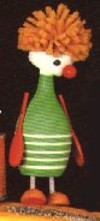A new study examining the habits of primary school students has concluded that childhood innocence has well and truly been lost.
Aside from the expected ‘wave of antisocial behaviour, materialism and the cult of celebrity’ inherent in the ‘yoof’ of today, kids are apparently feeling the effects of too much exposure to technology. This, the report suggests, could be one of the reasons why some children are bad at communicating with people.
Hmm, let’s get some perspective on this.
Technology has provided some incredible resources for children. Access to a vast library of online information at our fingertips, the ability to connect with other children across the world, to name just two. Yes, there are some very obvious downsides to technology - inappropriate content on the net being a major one - but surely these are outweighed by the plus points?
Or are they? Cast your mind back to when you were a kid (that may be a challenge, but give it a shot). At primary school, I only had access to a BBC computer (how retro) and that was only when I was eight. Free time was all about playing in the park, going round to a friend’s house or catching a cheeky little episode of Button Moon… ahh, Button Moon.
But before I take a complete detour down memory lane, the point to be made here is that times have changed and society with it. This doesn’t necessarily mean that my generation is better off than the children of today - it just means that the way we can now communicate is different.
Human interaction should play a massive role in children’s day-to-day activities and is a vital part of their development. However, the fact is that technology is now an integral part of everyday life and hence it's impossible for children not to use it.
Excessive exposure to computers, the internet, video games etc can be at the cost of a social life with ‘personal’ interactions. But as with all things, what is needed is a healthy balance between the two - with kids encouraged to embrace the online world of tomorrow, while not forgetting the very real world of today.

Comments